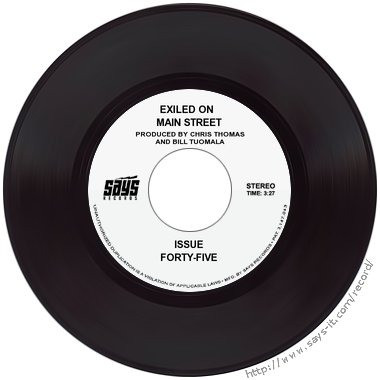Copy Link
Add to Bookmark
Report
SURFPUNK Technical Journal 099

Date: Wed, 20 Oct 93 20:17:14 PDT
Reply-To: <surfpunk@versant.com>
Return-Path: <cocot@versant.com>
Message-ID: <surfpunk-0099@SURFPUNK.Technical.Journal>
Mime-Version: 1.0
Content-Type: text/plain
From: surfpunk@versant.com (n uhtr nzbhag bs frvfzvp snhyg-fyvccvat)
To: surfpunk@versant.com (SURFPUNK Technical Journal)
Subject: [surfpunk-0099] $$$: Commercialization of the internet.
* "Singapore is an astonishingly efficient and
* repressive hyper-modern state, like Disneyland
* with the death penalty."
*
* -- William Gibson
I've heard that Mike Doonsbury is now on the internet...
Here are a bunch of articles about the commercialization of the net.
Some news reports, some people's analysis, some announcements of
commercial service. Notice I've been collecting some of this material
for a few months, waiting to do a big issue on them. --strick
-- Internet: commercial or not? [L. Detweiler]
-- "Cable Company is Set to Plug into Internet
-- AT&T Announces New Internet Connectivity Options
-- The Internet Letter (ISSN 1070-9851), the first commercial newsletter
-- IETF + PEM = Internet Commerce
-- O'Reilly Internet Magazine
-- Subscription to Federal Register
-- The Daily Cyber-Sleaze Report [finger hotlist@mtv.com]
________________________________________________________________________
________________________________________________________________________
To: cypherpunks@toad.com
Subject: Internet: commercial or not?
Date: Fri, 27 Aug 93 23:35:29 -0600
From: "L. Detweiler" <ld231782@longs.lance.colostate.edu>
This is just a little blip on the screen of the increasing strains in
the commercialization of the internet, a message enclosed below for
your perusal. There is a huge amount of seismic fault-slipping on this
subject. What is `allowed' on the internet? For example, are people
allowed to send credit card numbers to businesses for purchase? this is
happening with e.g. Wired subscriptions and other situations, but most
places who advertise directly get flamed by someone in the NSF ranks,
and afterwards at least do it more discreetly.
The situation is that the `internet' is now such a patchwork of
different nets, all with different policies and oversight, is very
close to anarchy, but still with distinct `taboos' against commercial
activity, to put it lightly. But the day that everyone will be dialing
up the Online Shopping Program over their PCs is inevitable and rapidly
approaching. The only question is, what will become of the current
`internet'? Will future networks just be laid on top of it, or will it
whither up after all traffic moves to completely `unrestricted'
commercial networks? I was just telling someone in email: to the extent
that you like the Internet, it is unrepresentative of the typical
government program. To the extent that you dislike it, it is
representative. It has only flourished to the degree it has because of
relative *unregulation* and *unrestriction*.
A major problem is that there is no way to guarantee that a given
message traverses exclusively commercial networks in going from one
source to another. I propose that new mail protocols be developed that
enforce the distinction, such that the message can `request' it be
transmitted in a completely commercial `unrestricted' path or not at
all. In this way a new group of networks governed by agencies
explicitly commited to unrestricted commercial traffic (hehe, sounds
sort of ominous like Unrestricted Submaring Warfare).
In the current situation, all the government bureacrats fire off
messages that `even though your message can travel on commercial nets
only, there is no way of guaranteeing that it does not cross public
networks, therefore it must abide by NSF Internet Use Policies.' In a
system where transmission paths are prescribed for email, a completely
commercial network can be achieved, an absolutely critical foundation
for all future electronic economics, and all our favorite ideas
(digital banks, services, etc.), with no whiney complaints from the
Backward Bureacrats.
If anyone is familar with the proliferation of online services over
commercial internet subnetworks, such as the `biz' distribution of
Usenet, please post more information on the progress of this.
Read my words! as beautiful and promising as the Internet is today, it
is just a small glimmer in the eye of future cyberspace, in which all
traffic is unrestricted except in volume and cost per bit (the former
prodigious and the latter piddly), so that commercial enterprise can
flourish. We have already waited long enough. The current taboos on the
internet will look quaintly archaic.
Look at the way this guy below is whining because the NIC service had a
`nice booth at InterOp' with enough cost to have funded `3-4 full time
employees typing whois entries' and asks for an `audit' because of the
possibility of (horrors) `advertising'. Yes, in the current dark ages I
concede he has a valid point (they are funded in part by NSF grants),
but this shows in crystalline clarity the absolutely chilling effect
that government funding has on a project (e.g., the internet) in
constraining its full commercial development. The greatest supporters
are the greatest detractors! Where else would a company be criticized
& investigated for having a classy booth at a trade convention (uh,
Microsoft excepted)? When the whole cyberspace in unrestricted,
though, I suppose he'll pop up complaining about the big companies
with glossy booths that could have funded 20 children on Welfare.
BTW, Network Information Center, database & catalogue of all internet
services, while a thinly veiled approach likely to evolve into a
full-fledged charging & advertising Cyberspatial Yellow Pages, is
clearly a cornerstone of AT&T's new drive into the internet for the
masses. (What is this guy referring to in the `attempt to reduce
expected services as with Whois'?)
===cut=here===
Date: Fri, 27 Aug 93 12:09:31 EDT
From: William Allen Simpson <bill.simpson@um.cc.umich.edu>
To: ietf@CNRI.Reston.VA.US
Subject: over funding of [InterNIC]
It has become apparent with the recent spate of disregard for internet
etiquette (posting job positions, posting "advertisements"), and the
simultaneous attempt to reduce expected services (whois), the providers
of the InterNIC are not suitable.
Did everyone see that they can afford a nice booth at InterOp? When did
any previous NSF grantee get such a thing?
The cost could have funded 3-4 full-time employees typing whois entries.
Obviously, the grant was too large, since they have all of this extra
money for advertising.
And why would they need to advertise, except that they want to leverage
a monopoly grant position into some commercial market?
I call for an NSF audit to endure that NSF money was not spent for
advertising and lobbying.
Bill.Simpson@um.cc.umich.edu
________________________________________________________________________
To: cypherpunks@toad.com
Subject: AT&T & cable co. `internet for the masses' product announcements
Date: Wed, 25 Aug 93 22:36:33 -0600
From: "L. Detweiler" <ld231782@longs.lance.colostate.edu>
Two announcements on products that will bring internet to large
audiences. One by Continental Cablevision Inc. The cable line one
apparently uses special coaxial cable modems, and apparently is
full-duplex (?). On front page of today's Wall St. Journal.
Following that, AT&T announces the Interspan `Frame Relay Services and
Information Access Services' to the internet. In the former, one gets
`cost-effective' internet capabilities, in the later
``current Interspan customers and all global Internet users will be
able to subscribe to the full range of messaging services from AT&T
EasyLink Services including electronic mail, text-to-fax delivery and
telex, and will be able to communicate with subscribers of non-Internet
commercial network services worldwide.''
Access through current connections with new `virtual circuit' or by
anyone at 300-14.4 bps in nationwide, toll free, seven digit number
950-1ATT, also an 800 number.
Also, customers can register in an AT&T database for the DNS system
with company names. Also, access to InterNic directory (hm, I wonder if
that was built in preparation & anticipation of this).
then stuff on the current EasyLink: 160 countries, electronic messages
with data interchange, gateways from LANs, email, enhanced fax, etc.
The critical question underlying all these services -- when will it be
the case that a completely cyberspatial company is erected, free of
harassment by archaic `internet acceptable use policies'?
===cut=here===
From: cook@path.net (Gordon Cook)
Date: Tue, 24 Aug 1993 17:41:51 GMT
>From today's Wall St. Journal
"Cable Company is Set to Plug into Internet
Cable Television will connect to the Internet, information pathway to millions
of personal computer users world-wide, early next year through direct link up
via Continental Cablevision Inc., one of the nation's largest cable operators.
The service, which could greatly alter delivery of electronic information,
would allow Continental's customers to plug PCs and a special modem directly
into Continental's cable lines, said William Schrader, President of
Performance Systems, a Herndon, VA. network services company that is
Continental's partner in the project.
The cable link would by pass local phone and other special hookups to access
the internet directly. More significantly it would allow customers . . . to
fetch whole kinds of information. . . at information superhighway speeds - as
fast as 10 million bits per second. . . . Mr Schrader said. . . . . "This
isn't some fluffy pie-in-the-sky vision," said David Fellows, a senior vice
president at Continental. Added Mr. Schrader: "Other companies such as Time
Warner inc in Orlando are talking about elaborate multimedia service tests.
But our plan is small simple and easy. This will work."
But while the new service holds much promise, no one is sure what the customer
demand will be, especially at an estimated cost of $70 to $100 a month. . . .
[Comment by G COOK Here the Journal gets confused. It seems to assume that
the audience for this service is the same as for prodigy or for CATV home
entertainment. NOT TRUE! The audience will be telecommuters, individual
entrepreneurs, and small businessmen with their own LANs, and K-12 school
districts, and local governments for whom $100 a month would be about 20% of
what they would have to pay for equivalent service over regular internet RBOC
phone access channnels.]
Performance Systems, which provides a means for customers to hook up to the
internet system , plans to install computer routers in the continental
network. . . . The routers will be installed in the main hubs or "head end"
facilities in continental's vast network, allowing easy extension of the new
internet service to homes and businesses tethered to the cable company. For
the customer's home or business computer Performance Systems will provide a
special computer modem to reach the service.
The two companies plan to announce the service today at an industry trade show
in San Francisco. The first hookups are scheduled to take place in Cambridge
Mass where Continental has many subscribers connected to Harvard University
and the Massachusetts Institute of Technology."
The rest of the article is plain vanilla what is the internet all about. This
seems to me to be an extremely significant announcement that
does not bode well for the RBOCs. I'd expect to see the rest of IP commercial
service providers running hard to jump on the band wagon.
_______________________________________________________________
Gordon Cook, Editor Publisher: COOK Report on Internet -> NREN
431 Greenway Ave, Ewing, NJ 08618
cook@path.net (609) 882-2572
Ask about my 15,000 word, $250, CATV vs. Telco's Internet & NII Study
_______________________________________________________________
===cut=here===
Date: Tue, 24 Aug 1993 18:04:27 -0500
From: farber@central.cis.upenn.edu (David Farber)
Subject: rather PRey but still -- AT&T Announces New Internet Connectivity Options
FOR IMMEDIATE RELEASE: Tuesday, August 24, 1993
AT&T Announces New Internet Connectivity Options
BASKING RIDGE, N.J -- AT&T today announced new options that will
provide a single-vendor solution for accessing both the global Internet
and enhanced messaging services. These new options will be available in
the first quarter of 1994 to customers of AT&T InterSpan (R) Services,
AT&T EasyLink Services and the millions of people worldwide who use the
Internet.
There will be new connections to the Internet from AT&T InterSpan
Frame Relay Services and Information Access Services. There also will
be new connections from AT&T EasyLink Services to the Internet through
AT&T InterSpan Services.
Customers of InterSpan Services will gain a variety of convenient,
cost-effective options to access the global Internet. At the same time,
InterSpan customers and all global Internet users will be able to
subscribe to the full range of messaging services from AT&T EasyLink
Services including electronic mail, text-to-fax delivery and telex, and
will be able to communicate with subscribers of non-Internet commercial
network services worldwide.
AT&T InterSpan Frame Relay Service customers will have access
to the Internet by simply adding a single permanent virtual circuit to
their existing connections.
Similarly, InterSpan Information Access Service customers will
be able to access the Internet at speeds ranging from 300 - 14400 bps
with a nationwide toll-free, seven-digit number (950-1ATT).
"Increasingly, organizations need to reach beyond their own
boundaries to access the information and computing resources they need,"
said Jayne Fitzgerald, product line director, InterSpan Data
Communications Services. "With these new options, our customers will
have the opportunity to simplify their premises equipment needs and
vendor interface requirements, as well as streamline their network
management issues."
For customers of AT&T EasyLink Services, who already have
access to the global Internet, the new connections will mean improved
reliability and performance for their Internet communications.
"More and more people, including AT&T customers, want to have
the option to communicate on the global Internet," said Sal Noto,
product management vice president, AT&T EasyLink Services. "In
providing that option, we're increasing the ease with which millions
of people can access each other as well as the information they want
and need."
The new AT&T options will include a naming service based
on the Domain Name System (DNS), a widely used method for naming and
translating addresses on the Internet. With this service, AT&T customers
will be able to register an Internet name of their choice--one that
reflects their corporate identity, for example--and use that name for
their communication on the Internet. AT&T also will offer to assist
customers with selection, registration and maintenance of their names
on the Internet.
All of the new AT&T Internet connectivity options will support
TCP/IP (Transmission Control Protocol/ Internet Protocol), the primary
method for transferring information across various networks on the
Internet.
Customers of the new Internet connectivity options will be able
to tap into the InterNic directory and database services. Provided by
AT&T since April under a cooperative agreement with the National Science
Foundation, these services make it easier for all Internet users to find
available Internet resources.
AT&T InterSpan Frame Relay Service and InterSpan Information
Access Service are members of a comprehensive new family of high-quality,
innovative data connectivity solutions designed to make it easier
to link people, locations and information. The InterSpan Services
facilitate faster, more efficient distributed computing for business
through customized data services flexible enough to change and grow
as a company evolves.
AT&T EasyLink Services serves more than 160 countries and has
sales and support offices in three dozen countries. AT&T EasyLink
Services offers one of the broadest arrays of electronic messaging
services in the market, including electronic data interchange, gateways
from LAN-based e-mail systems and telex, in addition to electronic mail,
enhanced fax and information services.
# # #
Editors' notes:
The global Internet is a system of approximately 14,000 interconnected
data networks, reaching more than 100 countries and serving commercial
organizations, research organizations, governments and universities.
By the end of 1993, more than 2 million computers, terminals and other
devices will be accessible on the Internet.
950 access is currently available in 90% of the U.S. market. Where 950
access is not available and as back-up, an 800 number is provided.
# # #
________________________________________________________________________
The Internet Letter (ISSN 1070-9851), the first commercial newsletter
on the Internet, will premiere at INET 93 and INTEROP(r)93, and a hard
copy version will be available at Booth #1334 (InterCon Systems Corp.)
in the South Hall of the Moscone Center.
The first issue of TIL provides provides the following information
about the editor:
The editor is Jayne Levin (netweek@access.digex.net). Levin
was former deputy bureau chief of Institutional Investor in
Washington, D.C., and has written on the Internet for The
Washington Post and Infoworld. Tony Rutkowski
(amr@CNRI.Reston.VA.US) is special adviser. Rutkowski is
founder and vice president of the Internet Society and
director of technology assessment at Sprint Corp. He was
former editor-in-chief and publisher of Telecommunications
magazine. Levin will be available for interviews at INTEROP.
Contact INTEROP press relations.
The table of contents for the first issue covered a wide range
of topics. The articles were professionally written and incisive:
001) INTERNET EXPERIENCING AN INFORMATION EXPLOSION
002) COMPANIES TAP INTERNET'S POWER
003) THE TOP 150 COMMERCIAL USERS ON INTERNET -- CHART
004) CIA, US GOVERNMENT INTELLIGENCE AGENCIES DEVELOP INTERNET LINK
005) REALTY FIRM IMPROVES PRODUCTIVITY, INTERNET SPEEDS REALTY TRANSACTIONS
006) MULTIMEDIA MAGAZINE TO DEBUT ON INTERNET
007) TASK FORCE PROPOSES STANDARD TO SECURE CONTENTS OF E-MAIL
008) INTERNET MERCANTILE STANDARDS EXPLORED
009) GOPHER LICENSING FEE SPARKS DISPUTE
010) FINDING GOPHER & GN
011) FROM SOFTWARE TO MAGAZINES, BUYING ELECTRONICALLY
012) CIX LAUNCHES COMMERCIAL "INFORMATION" EXCHANGE
013) SOME COMPANIES PREFER WAIS FOR BUILDING IN-HOUSE DATABASES
014) MORE ON WAIS
015) INTERNET TO ASSIST BETHANY IN ADOPTION SERVICES
016) FAQ
017) PROVIDERS' CIRCUIT
018) CIX CONTACTS -- CHART
019) TIPS & TECHNIQUES
020) POINTERS
021) TALK OF THE NET
022) WASHINGTON
023) READ ALL ABOUT IT
024) DATEBOOK
The first issue of TIL provides the following price information:
30-DAY INTEROP SPECIAL (good until September 30)
40% Discount off the regular rate of $249/year
Charter subscriptions: $149/year -- a 40% discount.
Universities and nonprofits $95/year.
If you not completely satified, your money will be refunded.
You can receive The Internet Letter electronically or on paper.
________________________________________________________________________
To: cypherpunks@toad.com
Subject: IETF + PEM = Internet Commerce
Date: Thu, 09 Sep 93 23:39:48 -0600
From: "L. Detweiler" <ld231782@longs.lance.colostate.edu>
Report: the IETF (Internet Engineering Task Force) is very pro-commerce
and recently met in Amsterdam for a session to discuss Internet
Mercantile Protocols (IMP). It would allow consumers & companies on the
Internet to combine PEM and MIME to complete and automate commercial transactions.
J. C. Davin, previously of Bellcore helped initiate the IMP project. He
envisions a standard that would allow companies to sell data such as
image files or software. Another approach being considered would allow
a sort of `home shopping network' approach.
Meeting m Amsterdam minutes can be found at thumper.bellcore.com.
Directory path: pub/devetzis/imp. Get: imp-archive.
Mail me for more information.
- - -
On a related note, Bob Metcalf of IETF and columnist for InfoWorld was
on NPR recently and talked about the `pampered elite' of people with
Unix machines that are currently using the internet. The comment was
clarified to mean that a vast audience of people with PCs and Macs and
other low-end computers are mostly unconnected. IETF membership info appended.
He shows a strong commitment to:
1) increasing address space for participants of the next century -
`upgrading in one of the biggest cutovers since Great Britain decided
to drive on the right side of the road'
2) exploiting ATM with ``cell-based protocols, operating systems, and
applications. Otherwise, the Internet stays stuck in its current
20-year-old ASCII-bound applications -- TELNET, FTP, and E-mail.''
3) strong support for *individual* subscribers vs. the current
institutional monopoly, with ISDN playing a central role
4) he's in favor of usage billing as a critical aspect of commercial
development. ``Internet carriers must be able, as are telephone
companies, to settle with one another for traffic carried on behalf of
each other's customers.''
From: "Bob Metcalfe" <Bob_Metcalfe@ccgate.infoworld.com>
>if you want to join the Internet Society, as I just did,
>to keep in touch with how the third generation is coming along, it costs $70
>per year and gets you the quarterly /Internet Society News/. Call >703-620-8990.
________________________________________________________________________
From Brian Erwin <brian@ora.com>
Newsgroups: comp.newprod
Subject: O'Reilly Internet Magazine
Date: Wed, 25 Aug 1993 05:51:55 CDT
THE GLOBAL NETWORK NAVIGATOR
An Internet-based Information Center
O'Reilly & Associates, Inc.
Free Subscription (send mail to info@gnn.com)
Next month, we will launch a new experiment in online
publishing, _The Global Network Navigator_ (GNN), a free Internet-
based information center that will initially be available as a
quarterly. GNN will consist of a regular news service, an online
magazine, The Whole Internet Interactive Catalog, and a global
marketplace containing information about products and services.
Keep Up with News of the Global Network
The Global Network News provides a continuously updated
listing of interesting news items by and about the users of the
Internet, including announcements of new information services.
Discover New Interests in GNN Magazine
Each issue will present articles developed around a common
theme, such as government or education. Regular columns will cover
such topics as how to provide information services on the Internet or
help for new Internet users. It will have several innovative
departments, such as Off The Wall Gallery, that exhibits in digital
form the works of new artists, and Go Find Out, a section containing
reviews of the Internet's most interesting resources.
How to find resources on a particular subject
One of the most popular features of O'Reilly's _The Whole
Internet User's Guide and Catalog, by Ed Krol, is the catalog of
information resources on the Internet. GNN features an expanded,
interactive version of this resource catalog that can be used online
to navigate to the Internet servers containing those resources.
The Online Whole Internet Catalog organizes Internet resources in the
following categories:
- The Internet - Arts
- Current Affairs - Libraries, Reference & Education
- Science - Government and Politics
- Technology - Business
- Humanities - Work and Play
In the Online Whole Internet Catalog, subscribers can not
only read about these resources, they can actually connect to them with
a click of the button.
Participate in the GNN Marketplace
Getting good information from a company about their products
or services is almost as valuable as the product or service itself.
The Global Marketplace provides referrals to companies providing this
kind of information online through the Internet. The Global Marketplace
also contains commercial resource centers in which subscribers may
find white papers, product brochures or catalogs, demo software or
press releases for the companies advertising in GNN Marketplace.
GNN and The World Wide Web
Global Network Navigator is an application of the World Wide
Web (WWW), developed at CERN in Switzerland. Users can choose any
WWW browser, such as Mosaic (available for UNIX, Windows, and the Mac)
from the National Center for Supercomputing Applications. In addition,
O'Reilly & Associates will make available Viola, an X-based hypermedia
software environment in which we've developed a sophisticated WWW
graphical browser. Viola makes it possible to distribute object-oriented
documents that use formatted text, graphics, icons, and scripts. All
World Wide Web browsers can be used to access network services such as
gopher and WAIS, independent of the Global Network Navigator.
How To Subscribe
The Global Network Navigator is available over the Internet
as a free subscription service during its launch. GNN will be funded by
sponsors who provide commercial information of interest to our readers
in GNN Marketplace and through advertising in GNN News, GNN Magazine and
the Online Whole Internet Catalog.
To get information on subscribing to Global Network Navigator,
send e-mail to info@gnn.com.
--
Brian Erwin, brian@ora.com
O'Reilly & Associates
103A Morris Street, Sebastopol CA 95472
707-829-0515, Fax 707-829-0104
________________________________________________________________________
From: gt2806a@prism.gatech.EDU (Daniel J Galloway)
Newsgroups: git.oit.questions
Subject: Subscription to Federal Register
Date: 13 Sep 93 19:08:03 GMT
I got this from the Library of Congress gopher server. It looks like
a reasonable price for the service provided. Feedback?
Counterpoint Publishing and
The Internet Company, (Internet.COM) announce
Gopher and WAIS Access to the Federal Register
via the Global Internet
May 1, 1993
Introduction
============
The full text of the U. S. Federal Register is now available on the Global
Internet via Gopher and WAIS. Anyone with a direct connection to the Internet
can now browse, search and retrieve the full text of any article printed in the
Federal Register. Articles appear the same day that the GPO makes them
available in electronic format.
Methods of Access
=================
The Internet Federal Register is available to any Internet connected host.
There are three access methods which require a "client program" to run on your
computer. All client programs mentioned are available free of charge to any
Internet connected site, via FTP from various archives. The final access
method requires only that you run the standard "TELNET" client on your
computer. All TCP/IP packages available for popular computers support TELNET.
Gopher Access
-------------
Gopher is a "user-friendly" menuing interface to information, developed by the
University of Minnesota. To access a Gopher server on the Internet, you run a
client program on an Internet connected host. Clients are available for
VAX/VMS, VM/CMS, MS-DOS, and Macintosh computers.
Gopher also integrates WAIS within itself, so using your single Gopher client
program you can conduct WAIS searches, as well.
WAIS Access
-----------
WAIS (Wide Area Information Server) is a power search and retrieval engine
developed by Brewster Kahle, (then of The Thinking Machines Company.) WAIS
support "relevance feedback searching" which allows a user to specify their
search parameters not only as keywords, but to refine the search to favor
documents or articles which are "like" a particular document. To access WAIS,
you run a client program on an Internet accessable host. Clients are
available for most popular computers.
NNTP (Usenet News) Access
-------------------------
NNTP is the standard way that news articles are transfered over the Global
Internet. The Federal Register/NNTP Service breaks the Federal Register out
into 18 separate newsgroups in categories like:
argiculture
commerce
defense
education
energy
environ
finance
foreign
general
govern
health
humanserv
interior
labor
legal
misc
science
transport
Federal Register/NNTP Service allows you to keep the entire text of the Federal
Register online, browsable using any standard Usenet newsreader.
TELNET Access
-------------
If you are unable to use Gopher/WAIS locally on your computer, or do not wish
to contract for the multiple user pricing, access to a Gopher/WAIS "TELNET"
account is also provided. This account will allow you to use Gopher and WAIS
without having to run the client locally on your computer. The only
requirement is that your computer support the standard Internet "TELNET"
terminal access program.
Pricing
=======
(** Please note that pricing has changed as of 5/1/93 **)
Gopher/WAIS Server Access and NNTP full feed
--------------------------------------------
Prices are yearly. Access to this service can limited by Internet host
or domain address. Domain address limiting allows an entire Internet
domain, (eg. *.purdue.edu) to access this service.
Educational (restricted by license to bona fide members of
the community)
Office $1,500
Department $2,500
Campus $4,500
Non-educational (restricted by license to internal use)
Lan $5,000
Site $7,500
Wan $10,000
Individual newsgroup pricing available upon request.
TELNET Account Access
---------------------
TELNET Account Access is available from many sites around the country. Prices
are per hour.
Educational Commercial
----------- ----------
$ 10/hour $ 10/hour
Limitations
===========
There are no usage limitations on this information. You are free to use any
and all information gathered from this service within your own organization.
You are not allowed to serve this information to any site or individual not
affiliated with your organization. Re-publication rights are available by
arrangement.
How to Order
============
To Order, either call Counterpoint Publishing at 1-800-998-4515, or send email
to "fedreg@internet.com" with your name, affiliation, and telephone number.
Someone will contact you as soon as possible.
Disclaimer
==========
This information is subject to change as we try to provide better service
with the help of our customers. Thank you.
________________________________________________________________________
/v/lang/strick/surfpunk/p 85 % finger hotlist@mtv.com
[mtv.com]
Login name: hotlist In real life: Hot List
Directory: /home/hotlist Shell: /bin/csh
Last login Thu Oct 14 21:45 on ttyp1 from hardcore.mtv.com
No unread mail
Plan:
The Daily Cyber-Sleaze Report
-=====-=====-=====--=====-==-
To receive the extended daily reports send mail to:
listproc@mtv.com with in the body of the message:
"subscribe CYBER-SLEAZE your name"
A new abbreviated report is available daily by fingering hotlist@mtv.com
------==========-----------===========-----------===========------
Chrissie Hynde has just finished an album that will be released as a
Pretenders album. By the way, she's such a big fan of Chicago's Urge
Overkill she showed up in San Francisco at their Slim's show selling
T-shirts for the band. The Pretenders have also cut a song for the Jimi
Hendrix tribute album coming out this November.
Iggy Pop is following up up his completely sold-out and highly successful
European tour with a brief tour of the U.S. this fall. His Virgin Records
release of "American Caesar" came out last month. In Iggy's own words,
"The shows have been great. The response has been really powerful and I'm
getting attention over here that I've never known before." Interview
Magazine calls "American Caesar" one of the most inspired outings of his
career." and Details Magazine asserts that "American Caesar" is precisely
what keeps Iggy's music interesting after twenty-five years." I suggest
you give it a shot...it's well worth the listen.
Cyber-Sleaze is a registered trademark of CurryCo Ltd.
====----====----====----====----====----====----====----====
The digital revolution has made it possible to deliver more accurate news
to anywhere in the world faster than ever before.
CurryCo Ltd. employs free lance reporters in New York, Chicago, Los
Angeles London and Amsterdam all jacked in to the Net.
Dont believe the hype of the tabloids and tv shows like " Hard Copy" and
"Entertainment Tonite". Get your Sleaze daily on-line on time.
Adam Curry's Cyber-Sleaze is shareware,
To receive the extended daily reports send mail to:
cyber-sleaze-request@mtv.com with in the body of the message:
"subscribe CYBER-SLEAZE your name"
A new abbreviated report is available daily by fingering hotlist@mtv.com
Upon your registration you will receive 10 Sleaze
updates per week along with late breaking news flashes and extensive
reports on major events such as MTV's Video Music Awards - Grammy
awards-the Oscars etc.
________________________________________________________________________
________________________________________________________________________
The SURFPUNK Technical Journal is a dangerous multinational hacker zine
originating near BARRNET in the fashionable western arm of the northern
California matrix. Quantum Californians appear in one of two states,
spin surf or spin punk. Undetected, we are both, or might be neither.
________________________________________________________________________
Send postings to <surfpunk@versant.com>,
subscription requests to <surfpunk-request@versant.com>.
WWW Archive at ``http://www.acns.nwu.edu/surfpunk/''.
________________________________________________________________________
________________________________________________________________________
I saw this Letter to the Editors recently in a
"family-oriented" Macintosh weekly & thought you'd all
enjoy it... - dave
"Ma and Pa Finder Can Beat the Peter Pan Syndrome"
--------------------------------------------------
My mother was right. I am not capable of taking care of
myself. Although I haven't mislaid my head as she long
predicted, I have lost nearly everything else. I thought
the Macintosh was going to help me organize my life, but it
let me down. My start-up volume, Moby Disk, is full of
hundreds of folders with names like Stuff, Stuff2 and Son
of Stuff. The names are somewhat accurate, they do contain
stuff, but I have absolutely no idea what that stuff is.
The Macintosh doesn't help. For me, the Finder is more of a
Loser.
I've noticed [MacWEEK columnist] Don Crabb's ongoing
attempt in The Mac Manager column to inspire Finder
improvements and alternatves. These new approaches will
never succeed. The onus is still on the user to organize
data, and a lot of us are simply incapable of doing that.
A woman recently told me that many men suffer from the
Peter Pan syndrome. They refuse to grow up. I think she's
right, and I qualify. I appreciate this slander, because it
provides me with a flimsy excuse for my lack of any
organizational maturity. I'm one of those fellows who
believes that underwear on the floor and socks in the
hallway are easier to find.
If Apple wants to show off one of its new technologies and
promote a better user environment, it needs to incorporate
psychology. For many of us, our mothers are the only people
who ever managed to exert some semblance of control over
our naturally messy selves. Bring out the Ma Finder. Using
PlainTalk's synthetic speech capabilities, the Ma Finder
talks to you as you perform tasks: "Now pick up that file
and put it where it belongs!"
This is way cool. I'd love it if my mother took over my
life. The real one would never put up with my nonsense
again, but the Ma Finder would. More disk space: "Do you
really need a seventh copy of TeachText?" Better
descriptors: "Nice people don't use file names like that!"
Easier searches: "This folder looks like a pigsty. Clean it
up." Better moral values: "I found this GIF file in your
'Hot' folder and, frankly, I'm a little disappointed." And
old fashioned motherly feedback: "So if George threw his
System folder in the Trash, would you have to do the same
thing?"
You'd have to be careful, though. If the Ma Finder started
getting on your nerves, it is not as simple as going to the
Sound control panel and pulling the slider down to zero.
"Don't you hush me, young man!" Try it, and you're likely
to hear from her partner, the Pa Finder.
The Pa Finder might have a very different way of
communicating with you. "Get your butt in here and empty
the Trash! " Or perhaps, "Boy, what is wrong with you?"
Apple can get a bit crazy when it comes to product
introductions. We might end up seeing a different Finder
personality every six months. Bully Finder: "Drop one more
file in this folder and I'm going to sock you! " Cop
Finder: "Let me see your license and registration card."
Doctor Finder: "Cough." Boyfriend Finder: "Trust me."
Girlfriend Finder: "No." Michael H. Spindler Finder: "You
need to toss out another 1,400 files."
I really would like a Macintosh that helped me
intelligently manage massive amounts of data. It is
difficult to maintain schemes for organizing years of work
and thousands of files. I don't have time during the day to
Iook for the perfect algorithm, so I am hoping that Apple
or a third-party developer discovers the right solution.
G Morgan Watkins Manager, Microcomputer Technologies
University of Texas at Austin

















